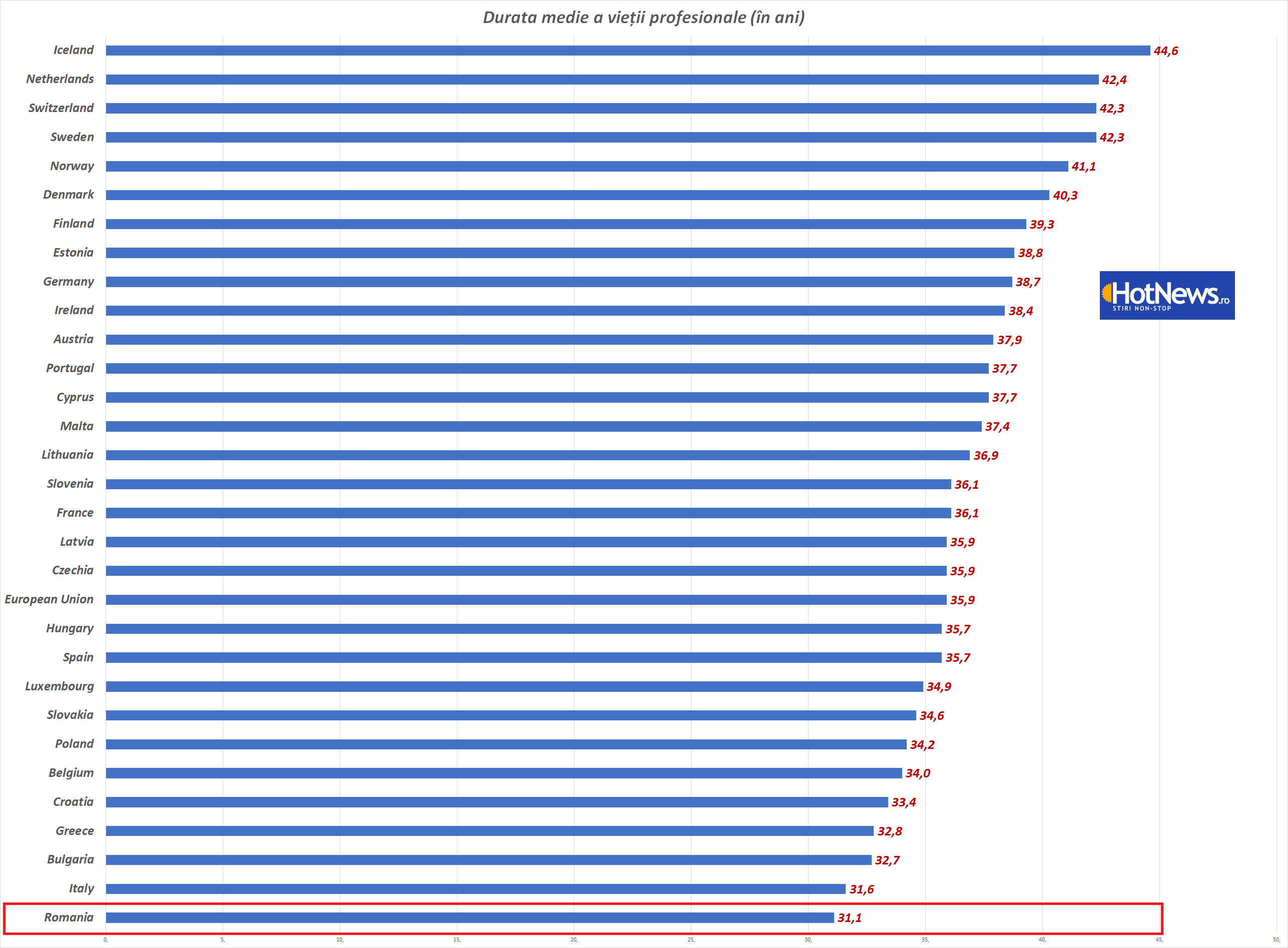
“The duration of working life in Romania is somewhere around 31 years, according to the statistics of the European Commission, the lowest in Europe. Of course, the average figure hides a lot, that is, this average consists of those who work over 65 or 70 years, but also of those who retire at an almost shameful age, at 40 years old,” explained Ionuts Dumitru, economist – head of Raiffeisen Bank in a debate organized by cursdeguvernare.ro.
At the age of 40, people are at the peak of their professional careers, but some prefer to sit at home and do nothing, although the state has spent enormous funds on schools and their specialization, the economist also says.

“It is probably necessary to change the policy in the sense of encouraging people to stay in economic activity as long as possible. We have 4 million inactive Romanians, although they are of working age, i.e. 15-64 years old,” says Dumitru.
Demographics are relentless.
“Demography is relentless. If we look at the demographic projections, we can see that there is not much we can do. And if something is done, the consequences will be long-lasting. A more stimulating demographic policy is needed, which will be felt not tomorrow, the day after tomorrow, and at least in 20 years. I mean, even if we make some good demographic decisions today, we won’t see the results anytime soon. And then you have to work with what you have. Those 4 million inactive people must somehow be involved in economic activity, let’s stimulate work,” the economist explains.
Also, he adds, something else needs to be said: there are many who prefer to work, for example, as a self-employed person or as an employer rather than as an employee, because the number of workers is very small compared to And in this section Romania is leaving the European landscape, and this is because we encourage other forms of income through ill-conceived tax breaks
Source: Hot News
Ashley Bailey is a talented author and journalist known for her writing on trending topics. Currently working at 247 news reel, she brings readers fresh perspectives on current issues. With her well-researched and thought-provoking articles, she captures the zeitgeist and stays ahead of the latest trends. Ashley’s writing is a must-read for anyone interested in staying up-to-date with the latest developments.